Vinegar is a powerful natural cleaner, capable of cutting through grime, neutralizing odors, and eliminating bacteria. It’s a go-to solution for many households looking for an affordable and chemical-free way to keep their spaces fresh. However, despite its versatility, vinegar isn’t a universal cleaning agent. Some materials react poorly to its acidic nature, leading to irreversible damage. Before reaching for that bottle of white vinegar, it’s crucial to know where it can do more harm than good.
Certain surfaces and household items deteriorate when exposed to vinegar, losing their durability, appearance, or effectiveness. The last thing you want is to ruin expensive countertops, electronics, or cookware simply because of a cleaning mistake. To help you avoid costly repairs or replacements, here are six things you should never clean with vinegar—and the best alternatives to use instead.
1. Natural Stone Countertops and Floors
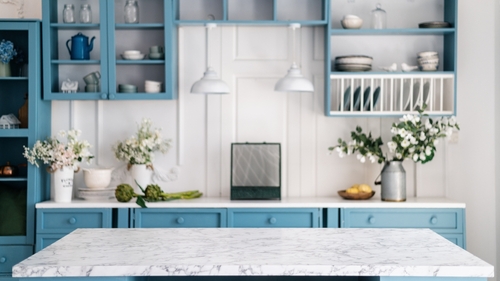
Granite, marble, and other natural stone surfaces may seem like they can handle anything, but vinegar is one of their worst enemies. The acidity in vinegar erodes the protective sealant and gradually eats away at the stone itself, leading to dullness, etching, and permanent damage. Even diluted vinegar can be harmful over time, causing the stone to lose its natural luster. If used repeatedly, it can leave streaks, discoloration, and weaken the structural integrity of the material.
What to Use Instead
Stick to a pH-neutral cleaner specifically designed for stone surfaces, or use warm water with a mild dish soap. For tough stains, a mixture of baking soda and water applied gently can lift dirt without harming the stone. Always wipe spills immediately and reseal stone surfaces periodically to maintain their durability and shine.
2. Hardwood Floors
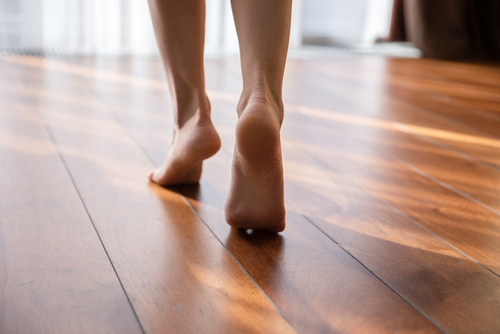
Vinegar’s acidic properties can wear down the protective finish on hardwood floors, leading to a dull and lackluster appearance. Over time, this breakdown makes the wood more susceptible to scratches, warping, and even water damage. While some DIY cleaning solutions recommend vinegar for hardwood, it’s best to avoid it altogether. Excess moisture combined with acidity can cause wood planks to expand, weaken, or develop an uneven texture, making the floor vulnerable to long-term damage.
What to Use Instead
A commercial hardwood floor cleaner is the safest option, but if you prefer a homemade solution, mix a few drops of mild dish soap with warm water. Always use a damp—not wet—mop to avoid excess moisture seeping into the wood. A microfiber mop is also a great alternative to help trap dirt without damaging the surface. For extra shine, a specially formulated wood polish can help preserve the natural beauty of your floors.
3. Electronics and Touchscreens
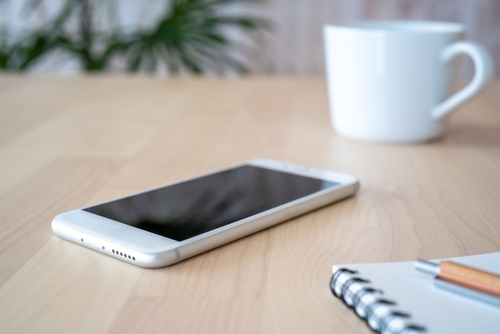
From smartphones to laptops, modern electronics are delicate and require special care. Vinegar can strip away protective coatings on screens, leading to cloudiness and reduced touch sensitivity. Additionally, vinegar can seep into openings, causing internal damage to sensitive components. Using vinegar on electronic devices may seem like a quick fix, but it can lead to permanent malfunction, affecting performance and longevity.
Read More: 20+ Genius Cleaning Hacks for a Spotless Home
What to Use Instead
Use a microfiber cloth slightly dampened with a mixture of distilled water and isopropyl alcohol. For screens, a specialized electronics cleaning wipe is the best choice to maintain clarity and responsiveness. Avoid using excessive moisture, and never spray liquid directly onto devices. Compressed air is also useful for clearing dust and debris from keyboards and ports without causing harm.
4. Rubber Seals and Gaskets
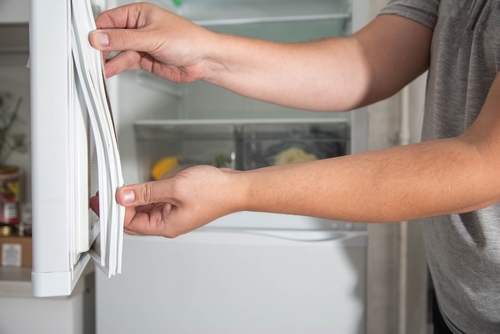
Appliance seals, refrigerator gaskets, and rubber fittings can all degrade when exposed to vinegar. The acidity weakens rubber over time, causing it to dry out, crack, or become brittle. This can lead to leaks in washing machines, dishwashers, and refrigerators, reducing efficiency and increasing the likelihood of costly repairs. Vinegar may seem like an effective way to sanitize these areas, but it ultimately accelerates wear and tear.
What to Use Instead
Clean rubber seals with a mild soap and water solution or a diluted baking soda mixture. Periodically applying a silicone-based lubricant can help maintain their flexibility and effectiveness. For refrigerator gaskets, a damp cloth with warm water and a touch of dish soap is the best approach. Regular maintenance will help extend the lifespan of these essential components.
5. Cast Iron Cookware
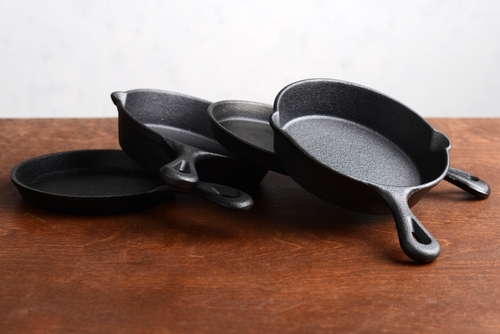
Cast iron skillets are prized for their durability and natural non-stick surface, but vinegar can ruin them. The acid strips away the seasoning layer, leaving the metal vulnerable to rust. Extended exposure can even cause pitting and permanent damage. If vinegar is used to clean cast iron, it can break down the carefully built-up layers of seasoning that enhance cooking performance and protect the pan.
What to Use Instead
For everyday cleaning, simply wipe down cast iron with a paper towel or a soft brush and hot water. For stubborn residue, use coarse salt as a gentle abrasive. Always dry immediately and apply a thin layer of oil to protect the surface. If rust forms, restore the skillet by scrubbing it with steel wool, rinsing it thoroughly, and re-seasoning with oil and heat.
6. Egg Stains
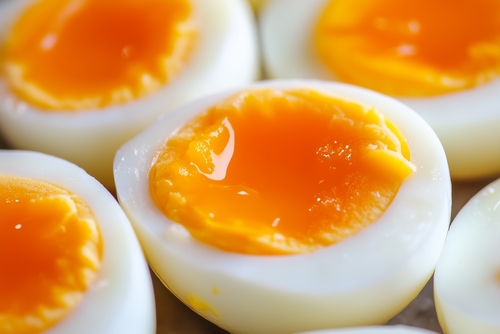
It might seem odd, but vinegar should never be used to clean up raw egg spills. The acidity in vinegar reacts with egg proteins, causing them to coagulate into a sticky, stubborn mess that becomes harder to remove. Instead of breaking down the egg, vinegar causes it to congeal, making cleanup even more difficult.
What to Use Instead
Wipe up egg spills with a paper towel and then clean the area with warm, soapy water. A mixture of water and baking soda can also help lift any remaining residue without making it worse. If the egg has dried onto a surface, soaking the area with soapy water for a few minutes before wiping it up will make removal much easier.
Final Thoughts
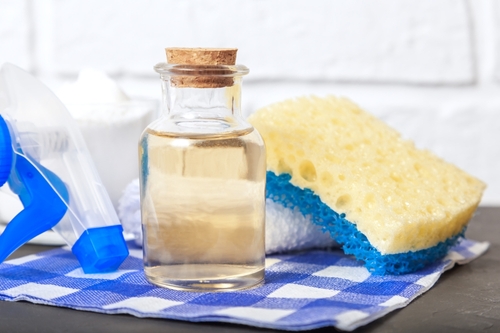
Vinegar is a great all-purpose cleaner, but it’s not suitable for everything. Its acidity can break down protective coatings, damage sensitive materials, and even make some messes harder to clean. While it remains an excellent option for many household tasks, understanding where it should never be used can save you from costly mistakes.
By using the right cleaning solutions for different materials, you can ensure that your home remains in top condition without unintended damage. When in doubt, check manufacturer recommendations or opt for gentler alternatives. Being mindful of what vinegar should and shouldn’t be used on will help you maintain the longevity and appearance of your belongings without unnecessary risks.
Read More: How Frequently Should You Be Washing Your Household Towels?

